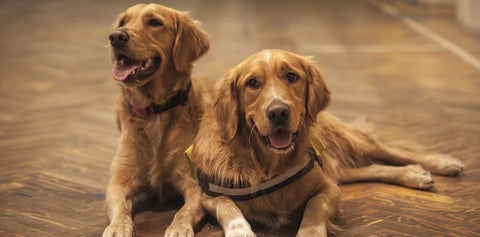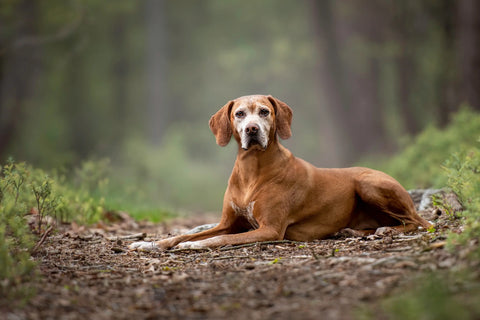

Coping with the loss of a pet
Allow the emotions to come
You’re likely to experience a whirlwind of emotions after the death of a pet. Even more so if you had to make some difficult decisions towards the end. Shock, sadness, despair, numbness, anger, disbelief, guilt – it can be one big rollercoaster. But they’re called ‘feelings’ for a reason. We’re supposed to feel each and every one of them. Let the emotions come, don’t try to push them down or bottle anything up. Journalling can be a great way to let it all out. And don’t get disheartened if you have a few good days and then find yourself having a really, really bad one. It’s totally natural.

Help children through
For many little ones, the loss of a pet is their first experience with death, so it’s important to handle things as delicately as possible. Talk to your child as much as you can. Read books dedicated to the subject. And be honest. Don’t be tempted to make up a story about your pet going to live on a farm, for example, as this can cause confusion as they get older. Find special ways to commemorate the life of your pet (more on this below). And understand that each child is different, so if you’ve got more than one, know that what works for one sibling, may not necessarily work for another.
Celebrate your pet’s life
We know that right now, it can feel like you’ll never smile again without your furry best friend by your side. The key is to try and focus on happy memories, and the amazing life that you gave your pet, instead of on the fact that he or she has passed on.
Consider holding a memorial. Visit a much-loved spot of your pet’s – it could be a familiar park, a special beach or just a sunny spot in the garden. Spend some quiet time here remembering them with those closest to you. Alternatively, exchange stories with friends and family and laugh about your pet’s unique personality. Rather be alone? That’s completely understandable. You could spend an afternoon curled up on the sofa, pasting your favourite photos into a beautiful album. Or writing a goodbye letter to your pet, thanking them for all the joy they brought to your life. It doesn’t matter what you do, but doing something will help you to heal.

Look after yourself
Sometimes, it can be hard to even get out of bed in the morning. But make sure you’re sticking to a routine. Eat at the usual times, keep the cupboards stocked with nutritious foods (a little chocolate and ice-cream is ok, too!), and get some exercise. Even if it’s just a gentle walk once a day to get some fresh air, clear your head and boost those endorphins.
Now’s also the time to seek comfort from others. It could be from a neighbour, a colleague, a family member or a close friend. It’s so important to keep talking. Bear in mind, some people might misunderstand the impact this has had on you, and may not realise that losing a furry family member can feel just like losing a person you’re close to. For that reason, try and speak to someone with a pet of their own, or who’s been through the loss of a pet before.
Seek help outside your circle if you need to
If you’d rather not confide in someone you know, there are plenty of places you can turn to instead. Click on the links below to find out more about dedicated helplines and support groups.
• Blue Cross
• Animal Samaritans
• Living With Pet Bereavement
• The Ralph Site
• Cats Protection Paws to Listen
All in all, grief is completely different for everyone, and there’s no ‘right way’ to deal with a loss like yours. The key is to surround yourself with support and understand that you’re not alone.


